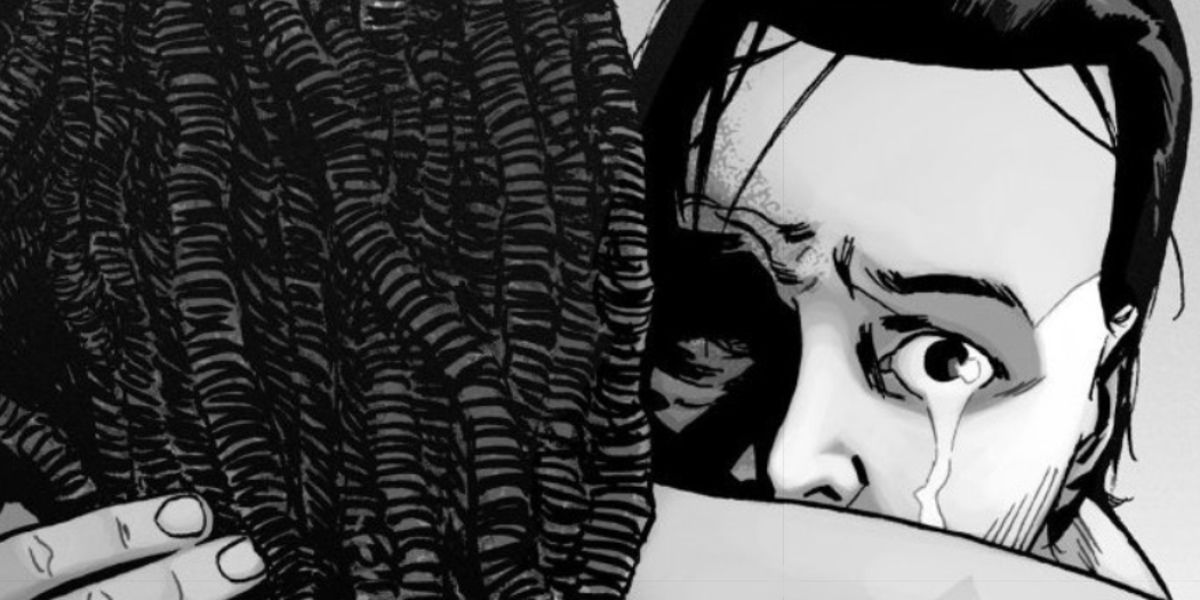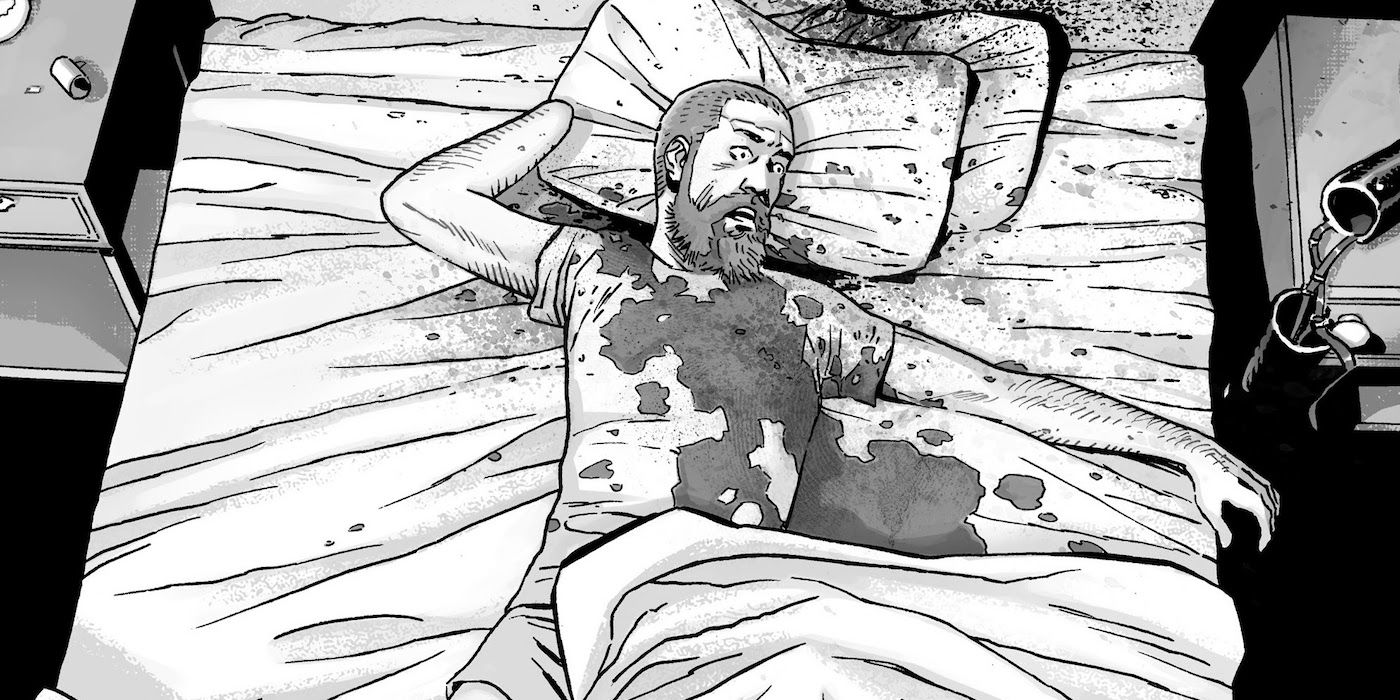WARNING: The following article contains spoilers for The Walking Dead#192, by Robert Kirkman, Charlie Adlard, Stefano Gaudiano and Cliff Rathburn, on sale now.
Fandom has certainly been split about the death of Rick Grimes in The Walking Dead #192. Many believe Rick earned his death, and it was bound to happen, especially considering creator Robert Kirkman had made it clear for years that not even the comic's lead protagonist was safe. Others were angry, as they felt antagonist Sebastian Milton was too new, and too trivial, to be the one to finally bring him down.
But while both sides argue over the significance of Rick's murder, and the person who shot him, what's clear is that this is precisely the kind of shakeup needed to revitalize the long-running comic book.
Kirkman himself addressed concerns about the comic becoming repetitive, stating The Walking Dead will always be about societies meeting each other, new experiences shaping heroes and villains, and, of course, the conflicts that arise between them. Some readers felt the Commonwealth coup was a rehash of problems Rick faced with Negan's Saviors, in terms of ideals and philosophies, while others maintained there was also an air of predictability to those new stories, which at times patterned Rick after the Governor, particularly after he killed Dwight.
But as Kirkman said, that simplicity is what moves the needle along for the human tales told against the backdrop of a zombie apocalypse. However, when you chronicle such stories for nearly 200 issues, it's bound to get a little monotonous, fostering a desire for the comic to be reinvigorated. Rick's death arguably could have been handled better, but ultimately, Carl putting down his undead father is a tragedy that's posed to further the boy's evolution into the leader fans have been waiting for him to become.
It also takes the focus away from Rick's style of leadership, which over the past 30 issues or so doesn't inspire awe as it did in the old days at the prison or Hershel's farm. It's like a presidency that's dragged on for too long. But by removing Rick from the equation, it's not only Carl, but the entire alliance of Alexandria, Hilltop and the Kingdom that now gets a reset of sorts. Sure, they'll keep their status quo, but this was a vision laid out by Rick, which means Maggie, Michonne & Co. now have a new canvas to paint a future for the communities. We don't expect everyone to remain the same after a stranger killed their leader, after all.
That said, Rick's death allows a new dynamic between towns, and more tension between these key players to develop. Kirkman is now more free to chart new storytelling territory within his fictional post-apocalyptic universe. More so, there's now a window of opportunity to introduce new players -- hey, maybe even a Daryl Dixon -- because Rick's death, like it or not, untethers The Walking Dead from its past.
Ultimately, we can appreciate Rick's death wasn't for shock value, but it is perhaps a defibrillator. It's a jolt to The Walking Dead's status quo that opens the door to turmoil within Rick's former inner circle, or another time-jump to demonstrate his era is indeed in the past. Rick built societies, united outsiders in peace, and in death, he actually taught the Commonwealth how to move forward -- both the politicians and the insurgents -- so he's done his job and handed off the baton. With that in mind, killing off Rick represents a soft reboot of sorts to ensure the next chapter is fresh, provocative and most importantly, unpredictable.
The Walking Dead #193 goes on sale July 3.



